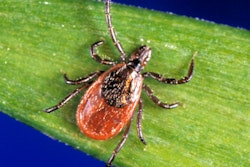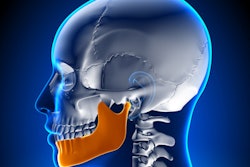
The antiviral drug remdesivir is making headlines again now that it is part of President Donald Trump's treatment for COVID-19. As the U.S. follows Trump's recovery, dentists may want to learn how remdesivir interacts with drugs they commonly prescribe to patients.
Numerous drugs that dentists routinely prescribe, as well as some antiseptic mouthwashes, interact moderately with remdesivir. Prescribing them to a patient with COVID-19 who is taking remdesivir could worsen his or her condition, according to a literature review published on September 24 in the European Review for Medical and Pharmacological Sciences.
"It is clinically necessary for oral health professionals to be aware of possible drug interactions that may occur between remdesivir and drugs commonly prescribed in dentistry in order to prevent adverse reactions that may even endanger the life of a patient with COVID-19," wrote author Dr. Gerardo Gómez-Moreno, PhD, from the University of Granada School of Dentistry in Spain.
In the news
In May, remdesivir received emergency use authorization from the U.S. Food and Drug Administration (FDA) for the treatment of COVID-19. Though it is authorized to be used in patients who are hospitalized with severe COVID-19, it's been reported that Trump began receiving the antiviral on October 2 along with an experimental antibody cocktail. The extent of Trump's recovery is unclear.
Possible side effects of remdesivir include increased sweating, trouble breathing, and lightheadedness, as well as more serious ones such as psychosis. The medication may cause serious medical conditions when combined with drugs commonly prescribed by dentists. To get a better idea of the risk, Gómez-Moreno conducted a literature review to identify potential pharmacological interactions between remdesivir and the drugs prescribed in dentistry. Research reported up to July 31, 2020, was included in the review.
The list is long
Currently, 279 drugs interact with remdesivir. Alcohol and some antibiotics, antifungals, and nonsteroidal anti-inflammatory drugs (NSAIDs) that dentists routinely prescribe cause moderate drug interactions, Gómez-Moreno wrote.
Alcohol presents a moderate drug interaction with remdesivir. Some antiseptic mouthwashes, which have been shown to reduce the viral load in COVID-19 patients, contain alcohol and should be avoided if patients are being treated with remdesivir. The drug's interaction with alcohol mainly involves liver problems, with symptoms including fever, chills, joint pain or swelling, nausea, unusual bleeding or bruising, skin rash, pale stools, and/or yellowing of the skin or eyes.
The antibiotics azithromycin, clavulanate, doxycycline, erythromycin, and levofloxacin can cause chemical-induced liver damage when taken with remdesivir and therefore should be avoided. This may also occur when remdesivir is mixed with the antifungals clotrimazole, fluconazole, itraconazole, and ketoconazole. They are potent enzyme inhibitors that can lead to spikes in blood plasma levels of remdesivir, which may result in liver damage, he wrote.
The NSAIDs celecoxib diclofenac, etodolac, flurbiprofen, ibuprofen, ketoprofen, ketorolac, mefenamic acid, naproxen, and piroxicam should be avoided in patients being treated with remdesivir. The combination puts patients at major risk of liver damage. When it comes to these drugs, dentists must seek alternatives or adjust the dose as much as possible to treat patients experiencing intense pain or inflammation in the oral cavity, Gómez-Moreno wrote.
A complete drug history
Oral healthcare professionals play a fundamental role in preventing and spreading COVID-19, he noted. Dentists need to be aware of all medications a patient is taking, and this includes ensuring that a patient's medical history is updated at every visit.
"In this context, dentists need to be aware of the potential risk of pharmacological interactions between remdesivir and the drugs prescribed in dentistry," Gómez-Moreno wrote.




















